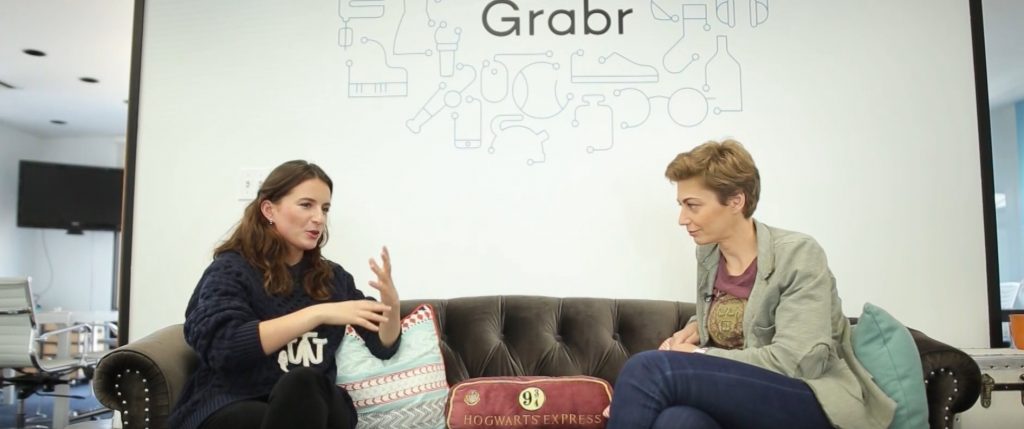
“We put on Super Mario costumes”: Highlights from an interview with a Russian on Forbes 30 Under 30 rating, Daria Rebenok
 This week Forbes published its annual 30 Under 30 rating, which included 600 successful young entrepreneurs from across the globe. Three Russians were on the list, including the founders of Grabr, Artyom Fedyaev and Daria Rebenok. Founder of The Bell, Liza Osetinskaya, interviewed Daria for our video project Russians are OK! and here are the best quotes:
This week Forbes published its annual 30 Under 30 rating, which included 600 successful young entrepreneurs from across the globe. Three Russians were on the list, including the founders of Grabr, Artyom Fedyaev and Daria Rebenok. Founder of The Bell, Liza Osetinskaya, interviewed Daria for our video project Russians are OK! and here are the best quotes:
How they got the idea for the business
“We really love travelling. Spain is one of our favorite destinations. There you can buy Alvalle brand gaspacho for just €2. In San Francisco it was tough, cold, and one evening we were talking and remembered that gazpacho. Let’s order some, we said to ourselves. But we couldn’t find it anywhere. And we thought: ‘My god, in San Francisco, where you can do everything at the touch of a button, we can’t even buy Spanish gazpacho. What is it like in Russia and other countries?’ We realized that such a service would be in demand — just like Postmates or Airbnb, where you make friends with fellow travellers and they bring you something. More than 50 million people across the globe each month are unable to buy a product they want on Amazon or the other top 20 American marketplaces.”
What Grabr does
“We have about a million users. As a traveller, you tell the service about your trip and you are notified that people from that country or city want something. If that happens, you can offer to deliver it. Depending on where you are flying to and how much time you are willing to spend, on one trip you can make anything from $10, if you bring a small item, to $1000 for a large order. On average, our users earn $350–$500. We earn a commission from each user of 7-15%. We have a dream to partner with credit cards or airlines. And we want to build a loyalty program so that people who fly often and deliver a lot of things earn miles which are then turned into tickets for air travel or free hotel stays.”
Where the first money came from
“My husband Artyom arrived in San Francisco without any specific plans as to where he would spend the night. A poor student can’t afford a hotel in the city. But his former university classmate lived here and called him and said: ‘I am going away this weekend, but you can stay with my friend and sleep on the sofa in his dorm”. They stayed up all night, of course. In the morning, the friend, whose couch my husband had slept on, said: ‘My parents, who live in Silicon Valley, just invited me and my friends for breakfast. Do you want to join?’ Artyom found himself sitting at a table with the friend’s parents who, it turns out, were investors in Silicon Valley. One of them asked Artyom: ‘Who are you, what do you do and how do you know my son?’ Artyom kept his cool and began to share his idea for a start-up. One of the them liked the idea so much that after breakfast he invited Artem for a drive, showed him Stanford and Google, and said: ‘If you are serious about this, send me a presentation’. Three months later, he gave the first $100,000.”
The search for investors
“At first, our parents helped us. Then we began to find angel investors in Russia: it was easier to raise money there for an early-stage project. We were at an event for start-ups hosted by TechCrunch. I looked around, there were so many people, so many companies, investors, journalists. How could we get their attention? I said: ‘we should put on costumes.’ Basically, we put on Super Mario costumes. A fund from Singapore noticed us and offered $2 million and this was a door opener for us to talk to Russian investors.”




